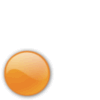In comments submitted to the U.S. Copyright Office, the maker of Firefox said it supports the Electronic Frontier Foundation (EFF) in its request for an exemption to the Digital Millennium Copyright Act (DMCA). The EFF wants the Copyright Office to let users jailbreak their phones without fear of copyright infringement penalties.
Apple opposes the exemption, and in its own filing with the Copyright Office, has said that jailbreaking is a violation of copyright laws that protect its software.
"This is not us criticizing Apple," Mozilla CEO John Lilly said in an interview on Monday. "But it's the principle of the thing. Choice is good for users, and choice shouldn't be criminalized. The Internet is too important for all of us for that."
"Jailbreak" is the term used to describe circumventing the digital rights management (DRM) technology on a cell phone so that the user can install third-party applications not authorized by the phone's maker or the mobile carrier. The term was popularized by iPhone owners after several groups of programmers figured out how to hack the first-generation iPhone's operating system.
Although it never mentioned the iPhone by name in its comments, Mozilla made no bones about the danger it sees if a company like Apple is the sole gatekeeper of a smartphone. "By controlling the software that can be installed on these cellular phones, these companies can limit and control the type of programs and functionality that is available to users of their devices," Mozilla's general counsel, Harvey Anderson, wrote in the comments submitted to the Copyright Office.
Anderson said that the DRM technology used to prevent people from installing software has a "chilling effect on users and innovation" because they are afraid that jailbreaking their phones is illegal.
He went on to argue that smartphones are akin to a computer, and because they can be used to access the Internet, should not be limited to the software authorized by the handset maker and/or the mobile service provider. "These devices contain Internet Web browser, and are therefore effectively users' doorway to the Internet -- a public commons," Anderson said. "Consumers should be entitled to use any software program they choose to access the Internet."
Apple includes a version of its own Safari browser on the iPhone, and decides which third-party applications can be downloaded from its App Store online mart, the only authorized distribution channel. In the past, Apple has rejected programs it says duplicate its own iPhone software, a notion that is reportedly spelled out in the iPhone's software development kit (SDK) licensing agreement. So far, no major rival to Safari has been offered to users through the App Store.
--------------------------------------------------------
If you like this post please Bookmark it and comment bellow. To recieve new updates and other posts like this please subscribe via RSS or via Email.




0 comments:
Post a Comment